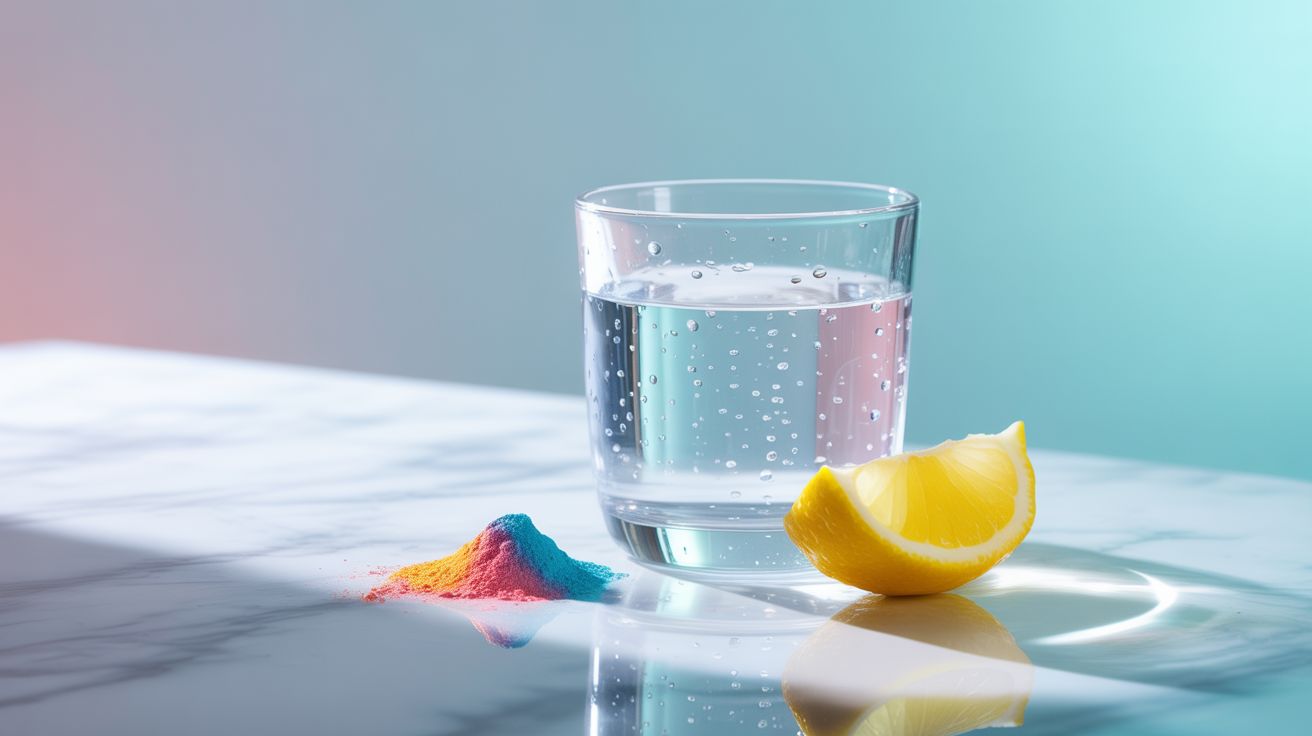
The Oversimplification Trap
Ever felt sluggish, headachy, or just plain off, and been met with the sage advice, “Just drink more water”? It’s a common refrain, often delivered with the best intentions. But while hydration is undeniably crucial for our health, reducing complex bodily functions and well-being to a simple directive like “drink more water” is not only unhelpful, it can be downright misleading. It ignores the nuances of individual needs, underlying health conditions, and the multifaceted ways our bodies utilize and lose fluids.
Think of it like telling someone struggling with their mental health to “just be happy.” It’s dismissive of the real challenges they face and offers no practical solutions. Similarly, simply increasing water intake without considering other factors can leave you feeling just as parched and unwell as before. Let’s delve into why this advice falls short and explore a more holistic approach to hydration and overall well-being.
Beyond the Thirst Quencher: Water’s True Role
Water is far more than just a thirst quencher; it’s the lifeblood of our bodies. It plays a vital role in countless processes, from regulating body temperature and transporting nutrients to lubricating joints and flushing out waste products. Dehydration, even mild dehydration, can negatively impact everything from cognitive function and energy levels to physical performance and digestion. It’s no wonder that staying adequately hydrated is essential for optimal health.
However, the amount of water we need isn’t a one-size-fits-all equation. Factors like age, activity level, climate, and overall health all influence our individual hydration requirements. Someone engaging in intense exercise, for example, will need significantly more fluids than someone leading a sedentary lifestyle. Similarly, individuals with certain medical conditions, such as kidney problems or heart failure, may need to carefully manage their fluid intake under the guidance of a healthcare professional.
The Electrolyte Imbalance: Water Isn’t Enough
While water is crucial, it’s not the only component of proper hydration. Electrolytes, such as sodium, potassium, magnesium, and calcium, are essential minerals that help regulate fluid balance, nerve function, and muscle contractions. When we sweat, we lose both water and electrolytes, which can lead to an imbalance if we only replenish with plain water. This imbalance can manifest as muscle cramps, fatigue, and even more serious health issues.
Imagine running a marathon and only drinking water. You might feel initially refreshed, but as you continue to sweat, you’ll likely experience muscle cramps and fatigue due to electrolyte depletion. This is why sports drinks, which contain electrolytes, are often recommended for endurance athletes. However, you don’t need to be a marathon runner to benefit from electrolyte replenishment. Even moderate exercise or spending time in hot weather can deplete your electrolyte levels.
The Food Factor: Hydration Through Diet
Believe it or not, a significant portion of our daily fluid intake comes from the food we eat. Fruits and vegetables, in particular, are packed with water and electrolytes. Watermelon, cucumbers, spinach, and strawberries are all excellent sources of hydration. Incorporating these foods into your diet can contribute significantly to your overall fluid intake and provide essential nutrients at the same time.
Think about a refreshing summer salad with juicy tomatoes, crisp cucumbers, and leafy greens. Not only is it delicious and nutritious, but it’s also a hydrating powerhouse. By focusing on a diet rich in fruits and vegetables, you can naturally increase your fluid intake without having to constantly chug water. This approach also supports a healthy diet, which is crucial for both physical and mental health.
Listen to Your Body: The Thirst Mechanism
Our bodies are incredibly intelligent and equipped with a sophisticated thirst mechanism that signals when we need fluids. Paying attention to these signals is crucial for maintaining proper hydration. Don’t wait until you’re feeling parched to reach for a drink. Instead, sip water throughout the day, especially during and after physical activity. However, it’s also important to note that the thirst mechanism can become less sensitive with age, so older adults may need to be more proactive about staying hydrated.
Consider this: if you’re consistently feeling thirsty, it’s a sign that you’re already dehydrated. Proactively drinking water throughout the day, even when you don’t feel thirsty, can help prevent dehydration and maintain optimal bodily function. This is especially important during periods of increased physical activity or exposure to hot weather. Learning to listen to your body’s cues is a key component of a healthy lifestyle.
Hydration and Mental Health: A Surprising Link
The connection between hydration and mental health is often overlooked, but dehydration can significantly impact cognitive function and mood. Studies have shown that even mild dehydration can lead to decreased concentration, impaired memory, and increased feelings of anxiety and fatigue. Staying adequately hydrated is essential for optimal brain function and overall mental well-being.
Imagine trying to focus on a complex task while feeling dehydrated. Your brain simply won’t function at its best. By prioritizing hydration, you can improve your cognitive performance, boost your mood, and enhance your overall mental clarity. This is particularly important for individuals who are already struggling with mental health issues, as dehydration can exacerbate their symptoms. Making hydration a part of your daily routine can be a simple yet powerful way to support your mental health.
Hydration and Fitness: Fueling Your Performance
Proper hydration is essential for optimal fitness and exercise performance. Dehydration can lead to decreased strength, endurance, and coordination, making it harder to achieve your fitness goals. It can also increase the risk of muscle cramps and heatstroke. Whether you’re hitting the gym, going for a run, or participating in a team sport, staying adequately hydrated is crucial for maximizing your performance and preventing injuries.
Think about trying to push yourself through a tough workout while feeling dehydrated. Your muscles will fatigue more quickly, and you’ll be more likely to experience cramps. By hydrating properly before, during, and after exercise, you can improve your performance, reduce your risk of injury, and recover more quickly. Consider carrying a water bottle with you during your workouts and sipping on it regularly. You can also incorporate electrolyte-rich drinks or snacks to replenish lost minerals.
Creating a Personalized Hydration Plan
Instead of blindly following the “just drink more water” advice, let’s create a personalized hydration plan that takes into account your individual needs and lifestyle. Start by assessing your current fluid intake and identifying areas where you can improve. Consider your activity level, climate, and any underlying health conditions. Experiment with different strategies, such as carrying a water bottle with you throughout the day, setting reminders to drink water, and incorporating hydrating foods into your diet.
Remember, there’s no one-size-fits-all approach to hydration. What works for one person may not work for another. The key is to find a strategy that fits seamlessly into your daily routine and helps you stay adequately hydrated without feeling overwhelmed. Pay attention to your body’s cues, listen to your thirst mechanism, and adjust your plan as needed. By taking a proactive and personalized approach, you can optimize your hydration and reap the numerous benefits for your physical and mental health. Don’t forget to consult with a healthcare professional or registered dietitian for personalized advice, especially if you have any underlying health conditions.
Beyond the Simple Fix: A Holistic Approach
The “just drink more water” advice, while well-intentioned, often falls short because it ignores the complexity of our bodies and the multifaceted nature of health. True well-being requires a holistic approach that considers all aspects of our lives, including diet, exercise, mental health, and, of course, hydration. By focusing on a balanced diet, regular physical activity, stress management techniques, and a personalized hydration plan, we can create a foundation for optimal health and vitality.
So, the next time you hear someone say “just drink more water,” remember that it’s just one piece of the puzzle. Encourage them to explore a more comprehensive approach to health and well-being, one that takes into account their individual needs and empowers them to make informed choices about their own bodies. Let’s move beyond the simple fix and embrace a holistic approach to health, one sip at a time. Take a moment now to reflect on your own hydration habits. What small changes can you make today to improve your fluid intake and support your overall well-being? Start with one simple step, and watch how it transforms your health.


